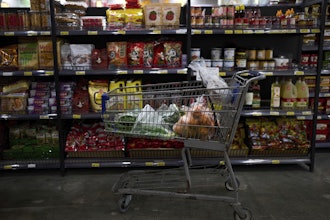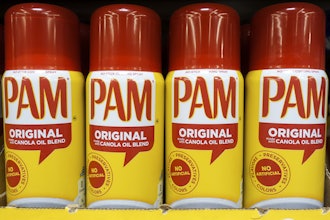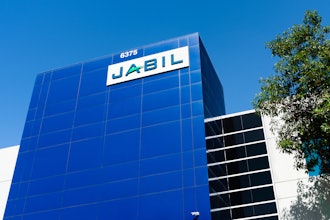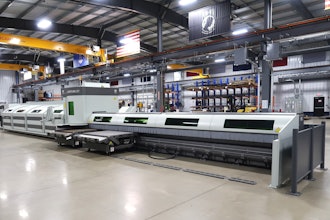Often when processors face capital expenditures to purchase new equipment in order to adapt to industry changes, or increased production demands, they turn to toll processors to help lighten the production and financial load.
However, when toll processors are confronted with industry changes, they are in a unique position of having to adapt in order to continue servicing their clients, which is what Package Kare Inc. faced when industry began phasing out the use of fiber drums for transporting bulk powders and replacing them with more economical paper and bulk bags.
“Our customers started asking if we could handle bags,” says Casey Muench, President of Package Kare Inc., a toll processor specializing in formulating, blending, and surface treating of powders such as titanium dioxide, zinc oxide, and other common industry powders.
Many of the company’s clients rely on the toll manufacturer as an extension of their processing facility, since it uses the same exclusive blending and formulating technology they have in their plant. This exclusive technology produces a precise uniform blend needed in the chemical, cosmetic, nutraceutical, personal care and food and beverage industries.
“Some of our clients that need this technology only do a couple runs of product per year and can’t justify purchasing a new machine,” says Muench.
Although blenders and formulators are typically difficult to load and access, the company utilizes a Gemcomatic, which allows it to easily dump drums directly into the blender without product or fugitive dust escaping. Because the company’s primary method to load the blender was with drums, it developed a repack procedure to accommodate bags while it searched for a more efficient solution.
“We manually had to put eight or so bags into these drums. That increased labor by 16 hours and required us to spend an additional $600 on drums. It also created a lot of dust in the repack room, so we called Vac-U-Max and told them of our dilemma,” she says.
Specializing in the design and manufacture of pneumatic systems and support equipment for the conveying, weighing, and batching of dry materials, Vac-U-Max has a unique adaptation of vacuum transfer called "direct charge blender loading”, designed specifically for the direct charge loading of blenders, mixers, reactors, and any vessel capable of withstanding a vacuum.
With a facility’s blender or mixer as the primary receiver, the conveyor manufacturer configures systems specific to each application, providing the power source, filters, controls, and adapters.
Power options include vacuum pump packages from 3hp and higher, as well as the company’s exclusive venturi power unit, which is available in single to quadruple venturi versions. Direct charge blender loading systems convey up to 7,000 pounds per hour and when they exceed that rate, systems are equipped with increased levels of automation.
“Our system is equipped with a bag dump station and a floor-standing blender loader that captures carry-over,” says Muench.
The bag dump station is designed to handle 25kg bags, pails, and cartons. Now, rather than two additional days of labor to transfer product from bags to fiber drums, an operator now slices the entire length of the bag, flips it over and dumps the powder into the station. From the station, powder flows by gravity to the vacuum pick-up point on the bottom of the bag dump station and discharges directly into the blender or formulator.
Vac-U-Max bag dump stations generally include an integral dust collector, however Package Kare chose to utilize its existing dust collector with ducting that connects to the back of the station.
Since the conveyor manufacturer configures systems specific to each application with standard equipment, direct charge blender loading systems come with the option of either floor-standing or suspended blender loaders that are designed to significantly reduce the amount of carry over, eliminating product loss.
The advantage of floor-standing units is that they are readily accessible for cleaning and can be equipped with casters, allowing them service more than one blender. With floor-standing units, once the blender is loaded and equalized, carry-over releases into an airtight vessel that preserves product integrity allowing for reuse or safe disposal.
With suspended units, once the blender is loaded and equalized, material automatically discharges back into the blender eliminating the need to handle product manually.
“In our industry there is some concern about carry-over and the goal is to minimize the amount of product you handle manually. I believe the industry standard is about 10 percent carry over, but the Vac-U-Max system is extremely efficient,” says Muench.
“We have three or four main products that we run in our formulator, and after 2.5 hours of loading 2,500 pounds we only have about one pound of carry over,” she says. “The most I have seen is two pounds and that is with another product line that we run with 6,000 pounds of powder per batch.”
“Their filter systems are incredible. The vacuum pump has not seen an ounce of powder in it,” say Muench.
The minimal carry-over experienced by Package Kare is due in part to the large capacity of its equipment — the larger the blender, mixer or formulator, the less carry over is accumulated.
Sometimes the cost benefit of equipment goes beyond reduced labor, plant efficiency, and reduced material costs, materializing in the ability to take on new customers, which was the case when a new client approached the toll processor with a material that appeared impossible to convey pneumatically.
“We would have had to turn a customer away if Vac-U-Max hadn’t found a way to get the finished product to work with the system,” says Muench.
The solution to get the clay-like material to convey into bulk bags included fitting a pick-up hopper into the space where fiber bins normally sat in the Gemcomatic. From the pick-up hopper — equipped with a free-flowing screw discharger designed to handle sticky powders — material is metered into the conveying line to a vacuum receiver, discharges into a bulk bag loading station and then releases into a fresh bulk bag.
“They gave us something that would already fit our device. It was easy — just plug it in and go,” says Muench.
“We deal with a lot of difficult materials, and working with Vac-U-Max has allowed us to meet customer needs without having to modify our equipment,” she says. “When you start getting into equipment modifications, it means bigger and bigger dollars.”
In addition to eliminating retrofitting costs and reducing labor needed to accommodate the sacks and bulk bags, the company has also benefited from reduced labor costs associated with standard maintenance and cleaning because of the conveyor system’s simple design.
At the toll blending facility, there are three tiers of employees on the floor—helpers, operators and mechanics. “The operation of the conveying equipment is so simple, an operator level employee is not necessary. Our helpers set up and load or unload the equipment. The conveying system doesn’t need any tools to take it apart so there is no need for mechanics to operate this system,” says Muench.
To ensure the equipment is free of residual powder, equipment is taken apart and cleaned after every product. “We have different hoses for every product and that saves a lot of time. It only takes 30-45 minutes to wash down the equipment and change out the bags, filters and hoses,” she says.
Muench says, “The process has eliminated the 16-hour repack procedure, allowed us to accept all three standard means of carrying bulk material and saved us cost and resources.”
The use of direct charge blender loading systems allows processors to adapt to industry changes by eliminating the need for conventional vacuum receivers, transferring all materials into the process without spills and waste, and keeping housekeeping to a minimum.
___
To learn more about how direct charge blender loading systems can reduce costs or VAC-U-MAX pneumatic material handling or industrial vacuum cleaning solutions, visit their website www.vac-u-max.com.






















